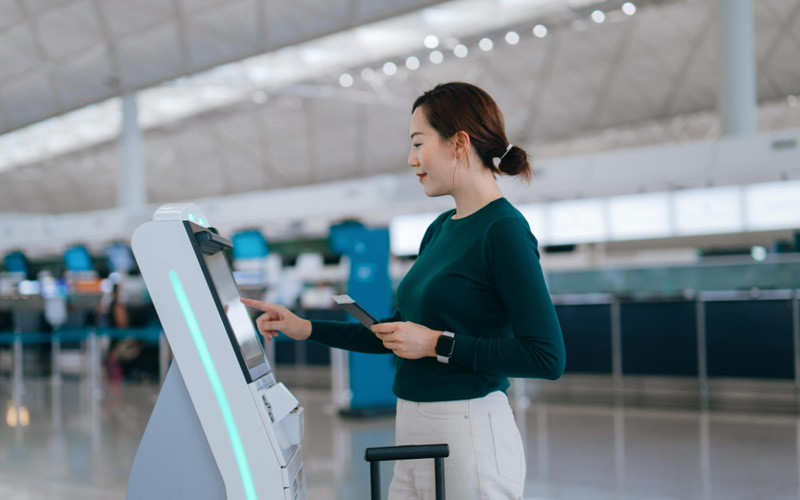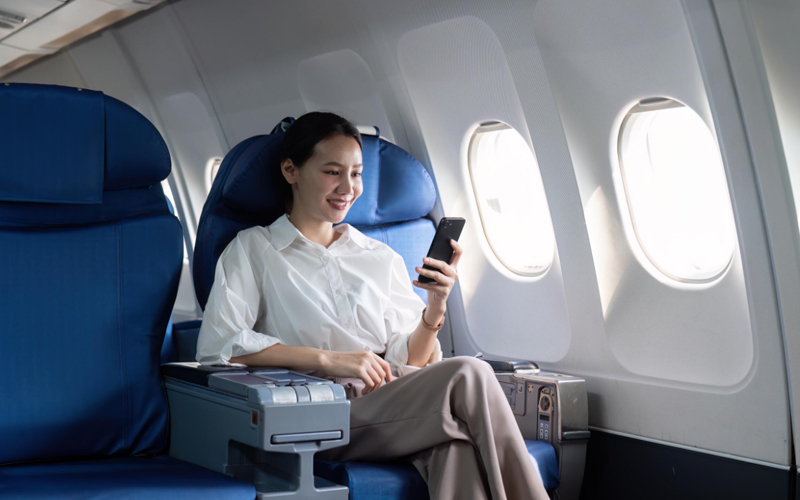The modern travel industry is evolving rapidly, with emerging technologies and shifting consumer expectations driving innovation. One of the most significant changes is the emergence of voice search for business redefining how travellers plan and book their journeys. About 20.5% of people globally use voice search today, with increasing smart device adoption and a growing demand for convenience and personalisation driving this trend. To stay competitive and meet rising customer expectations, the travel and hospitality industry must stay ahead of this trend and prioritise optimising voice search advertising to deliver faster, more intuitive customer experiences.
Transforming travel business with voice search
The way people search for, select, and secure travel options is becoming more conversational and intuitive. Voice search for business streamlines the booking experience, allowing travellers to use natural, everyday language to find flights, hotels, and travel recommendations.
The rise of AI-driven personalisation will be central to this shift, tailoring search results based on preferences, behaviour, and past interactions. Customers expect faster, more relevant results with minimal effort, driving this shift. Travel companies must adopt and optimise business voice search to improve engagement and offer seamless experiences for higher conversion rates and a competitive edge.
Key challenges in optimising voice search advertising
Despite the opportunities, several challenges can prevent businesses from fully leveraging the potential of voice search advertising. The travel industry must address them to deliver meaningful value to both companies and travellers.
- Response accuracy: Voice search functionality must deliver precise and relevant information or risk losing customer trust.
- Privacy and data protection: Businesses must be transparent about how they store and use traveller data, especially with growing concerns around devices listening passively.
- Language and dialect diversity: Voice agents must interpret and understand accents, regional phrases, and linguistic nuances to offer reliable results.
- Features snippet competition: Brands must optimise content to secure the top spot, as voice assistants typically speak only one answer aloud.
- User intent understanding: Systems must decode vague or conversational queries using advanced content strategies and AI-driven insights.
- Local SEO optimisation: Travel businesses must also tailor content to target and capture location-specific searches.
- Conversational content strategy: Businesses must develop voice-friendly content that reflects natural speech and meets user expectations in a voice-first world.
Infosys BPM offers specialised travel and hospitality outsourcing solutions to help travel businesses overcome these challenges while optimising their voice search advertising. With a focus on innovation, data security, and customer experience, Infosys BPM helps brands navigate the complexities of the modern travel and hospitality landscape and stay competitive with an optimised voice search for business.
Best practices for optimising business voice search
Harnessing the full potential of voice search for business requires a blend of technical expertise and an audience-focused content strategy. Here are key best practices that can help travel brands optimise their voice search advertising:
Build content around natural, conversational speech
Users often speak differently than they type. Tailor your content to mirror natural speech patterns and personalisation cues to answer common traveller questions in clear, concise terms.
Target long-tail and location-based queries
Voice search often revolves around specific phrases like “luxury beach resort near me” or “cheapest flight from Tokyo to New York next Friday”. Integrating business voice search into your SEO strategy and optimising for such longer, intent-rich queries can improve visibility and relevance.
Integrate AI to enhance understanding and responses
Technologies like natural language processing and predictive analytics can help decode voice commands more accurately. Leveraging next-gen tools ensures your voice interface keeps pace with user needs and delivers tailored responses in real time.
Use structured data to win featured snippets
Implement structured data markup to help search engines understand your content and boost your chances of becoming the featured voice result.
Focus on precision and clarity in answers
Users often expect quick answers from voice search queries. Ensuring your content delivers the most relevant and precise information first ensures seamless customer experience and enhanced engagement.
Prioritise mobile-first experiences
Since mobile and smart devices drive most business voice search queries, seamless mobile optimisation is essential. Fast landing pages, responsive design, and user-friendly layouts are non-negotiable when delivering frictionless booking experiences through voice search advertising.
As voice search capabilities continue to advance, voice-activated room bookings, smart assistants in hotels, and AI-powered travel chatbots will define the future of travel. Travel brands that invest early in optimising voice search for business can shape the future of bookings and redefine digital travel experiences with hyper-personalisation.
Conclusion
Voice search is reshaping how travellers engage with brands, setting new standards for faster bookings, enhanced personalisation, and smarter customer engagement. By understanding user behaviour, refining content strategies, and leveraging the right tools, travel brands can stay ahead in a voice-first travel landscape. Investing in voice search for business can help then ensure stronger visibility, improved engagement, and long-term success.








